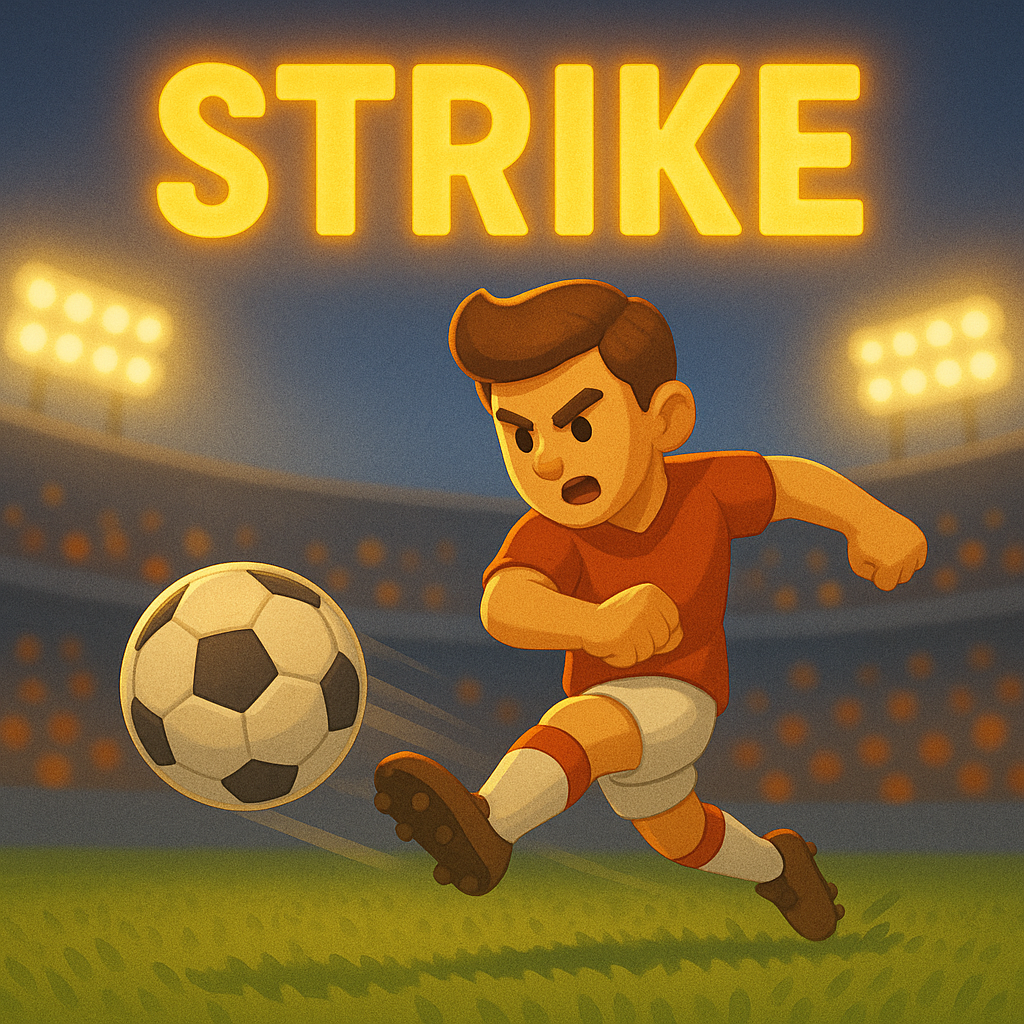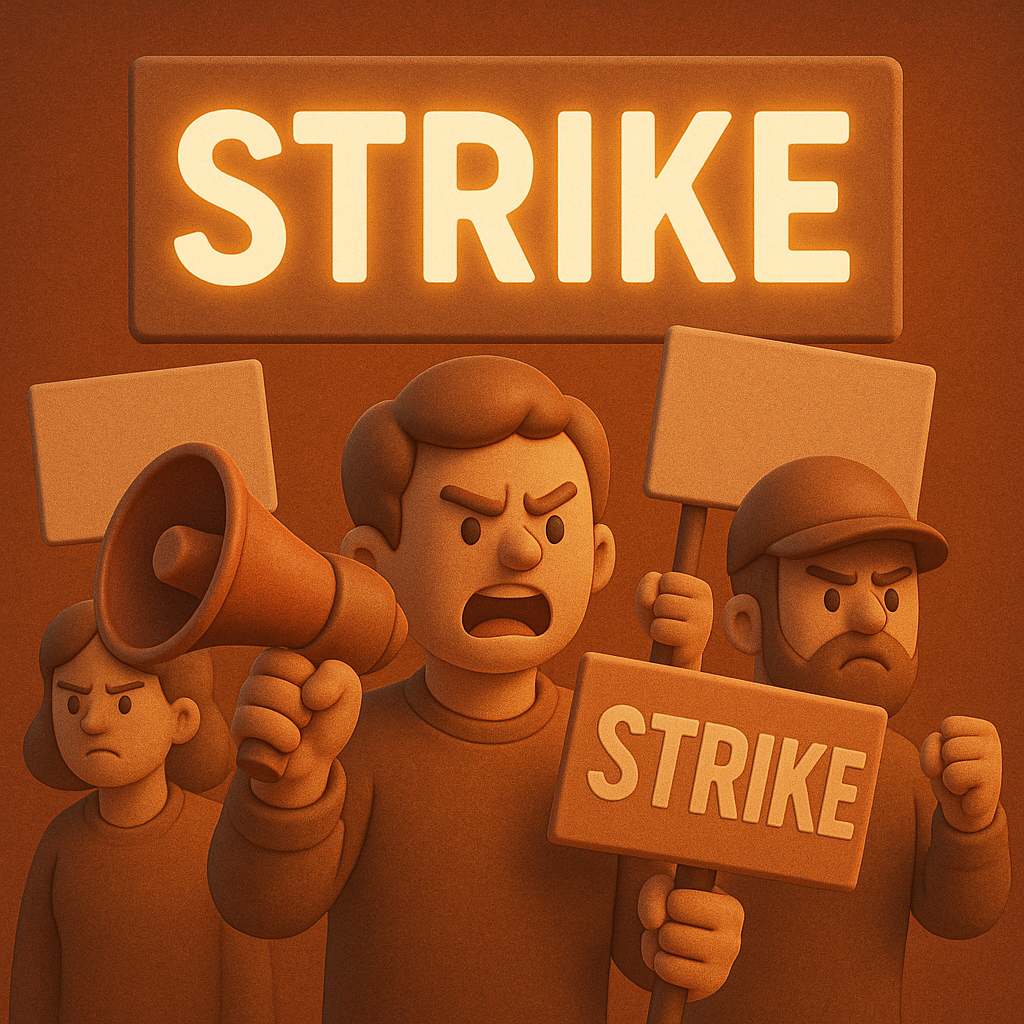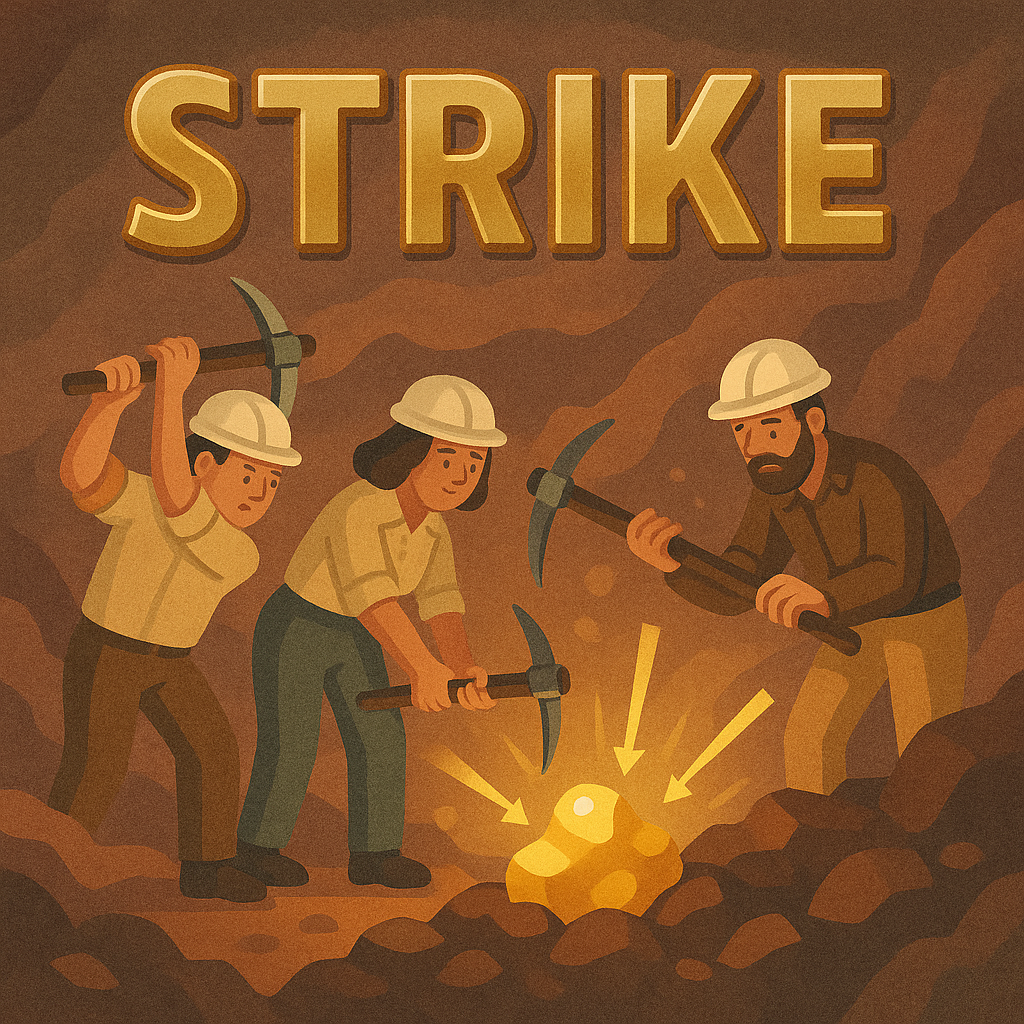Strike
Definition
The term "strike" refers to hitting something with force, refusing to work as part of a protest, or achieving something unexpectedly.
Parts of Speech
- Verb
- Noun
Pronunciation
American English
- IPA Pronunciation: /straɪk/
- Respelling: STRYK
British English
- IPA Pronunciation: /straɪk/
- Respelling: STRYK
Etymology
The word "strike" originates from Old English "strican," meaning "to pass lightly, stroke," and Middle English "striken," meaning "to strike or dash against," related to Proto-Germanic "*strik-." It evolved to encompass multiple meanings, including physical hits and labor protests.
Derivatives
- Striker (noun)
- Striking (adjective)
- Strikeout (noun)
- Strikethrough (noun)
- Strikingly (adverb)
Synonyms
- Hit
- Blow
- Protest
Antonyms
- Miss
- Failure
- Agreement
Usage
The term "strike" is used in various contexts, such as labor protests, physical actions, and achievements. For example, "The workers went on strike" or "He managed to strike the target with precision."
Related Terms
- Protest: A demonstration of objection.
- Hit: To make contact with force.
- Achievement: Successfully attaining a goal.
Detailed Definitions
Verb
- To hit something with force: Refers to physically making contact with a target.
- Example: "He struck the ball with great power."
- To refuse to work as part of a protest: Refers to labor actions aimed at achieving demands.
- Example: "The union decided to strike for better wages."
- To achieve something unexpectedly: Refers to sudden success or discoveries.
- Example: "The team struck gold during the excavation."
Noun
- A labor protest: Refers to a refusal to work as a form of protest.
- Example: "The strike lasted for two weeks."
- A physical blow: Refers to an act of hitting something or someone.
- Example: "The boxer landed a powerful strike."
- An unexpected success or discovery: Refers to achieving or finding something valuable.
- Example: "The company had a major strike in the oil field."
strike



🇨🇳 Mandarin
- 打 (dǎ) - Strike
- IPA Pronunciation: /taʔ⁵⁵/
- English Respelling: da
- 罢工 (bà gōng) - Strike as in workers' strike
- IPA Pronunciation: /paʔ⁵¹ kʊŋ⁵⁵/
- English Respelling: ba gong
🇮🇳 Hindi
- मारना (Maarna) - Strike
- IPA Pronunciation: /maːɾnaː/
- English Respelling: maarna
- हड़ताल (Hadtaal) - Strike as in workers' strike
- IPA Pronunciation: /ɦəɽt̪aːl/
- English Respelling: hadtaal
🇪🇸 Spanish
- Golpear - Strike
- IPA Pronunciation: /ɡol'pe.aɾ/
- English Respelling: gol-pear
- Huelga - Strike as in workers' strike
- IPA Pronunciation: /'wel.ɡa/
- English Respelling: wel-ga
🇫🇷 French
- Frapper - Strike
- IPA Pronunciation: /fʁa.pe/
- English Respelling: fra-pay
- Grève - Strike as in workers' strike
- IPA Pronunciation: /ɡʁɛv/
- English Respelling: grev
🇸🇦 Arabic (MSA)
- ضرب (Daraba) - Strike
- IPA Pronunciation: /dˤaraba/
- English Respelling: da-raba
- إضراب (I'diraab) - Strike as in workers' strike
- IPA Pronunciation: /ʔidˤiraːb/
- English Respelling: id-dirab
🇧🇩 Bengali
- আঘাত করা (Āghāta karā) - Strike
- IPA Pronunciation: /ɑːɣat̪a kara/
- English Respelling: a-gha-ta ka-ra
- সময়বদ্ধ বন্ধ (Samayabaddha bandha) - Strike as in workers' strike
- IPA Pronunciation: /ʃɔmojɔboddʰo bond̪ʰo/
- English Respelling: sho-mo-yo-bod-dho bon-dho
🇷🇺 Russian
- Ударить (Udarit') - Strike
- IPA Pronunciation: /ʊˈdarʲɪtʲ/
- English Respelling: u-dar-it
- Забастовка (Zabastovka) - Strike as in workers' strike
- IPA Pronunciation: /zəbɐˈstofkə/
- English Respelling: za-ba-stov-ka
🇵🇹 Portuguese
- Golpear - Strike
- IPA Pronunciation: /ɡɔɫˈpeaɾ/
- English Respelling: gol-pear
- Greve - Strike as in workers' strike
- IPA Pronunciation: /ˈɡɾɛvi/
- English Respelling: gre-vi
🇮🇩 Indonesian
- Menyerang - Strike
- IPA Pronunciation: /mə.ɲə.raŋ/
- English Respelling: me-nye-rang
- Mogok - Strike as in workers' strike
- IPA Pronunciation: /mo.gok/
- English Respelling: mo-gok
🇩🇪 German
- Schlag - Strike
- IPA Pronunciation: /ʃlaːk/
- English Respelling: shlaak
- Streik - Strike as in workers' strike
- IPA Pronunciation: /ʃtraɪk/
- English Respelling: shtraik
🇯🇵 Japanese
- 打つ (Utsu) - Strike
- IPA Pronunciation: /ɯᵝt͡sɯᵝ/
- English Respelling: u-tsu
- ストライキ (Sutoraiki) - Strike as in workers' strike
- IPA Pronunciation: /sɯ̥toɾaikʲi/
- English Respelling: su-to-rai-ki
🇻🇳 Vietnamese
- Đánh - Strike
- IPA Pronunciation: /ɗaːŋ˧˧/
- English Respelling: danh
- Bãi công - Strike as in workers' strike
- IPA Pronunciation: /ɓaːj˨˩ kɔŋ˧˥/
- English Respelling: bai cong
🇰🇷 Korean
- 치다 (Chida) - Strike
- IPA Pronunciation: /tɕʰi.da/
- English Respelling: chi-da
- 파업 (Pa-eop) - Strike as in workers' strike
- IPA Pronunciation: /pʰa.ʌp̚/
- English Respelling: pa-eop
🇹🇷 Turkish
- Vurmak - Strike
- IPA Pronunciation: /vuɾ.mak/
- English Respelling: vur-mak
- Grev - Strike as in workers' strike
- IPA Pronunciation: /ɡɾev/
- English Respelling: grev
🇵🇰 Urdu
- ضرب (zarb) - Strike
- IPA Pronunciation: /zərb/
- English Respelling: zarb
- ہڑتال (hartal) - Strike as in workers' strike
- IPA Pronunciation: /ɦəɽ.t̪aːl/
- English Respelling: har-taal





